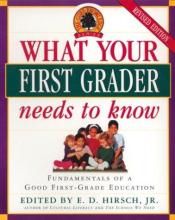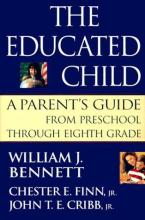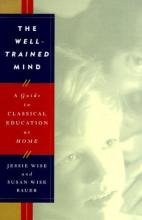Books About Curriculum
Designing your Own Classical Curriculum
DYOCC is quite a bit different from the other books on Catholic Homeschooling. Instead of simply discussing homeschooling, as the other books do, Mrs. Berquist outlines an entire homeschool curriculum you can use with your children or adjust to your liking. She includes suggestions for putting together your own curriculum and a grade by grade outline which includes recommended texts, sample weekly schedules, a number of study guides, lists of important dates and people, poetry suggestions and extensive lists of appropriate literature and history stories. I found her introduction very helpful in fine-tuning my educational goals for my children. Even parents who are happily using another curriculum will find this book a very valuable source of supplemental resources and tips for making homeschooling more interesting and more successful. Some homeschoolers consider her to be much stronger in the history, literature and religion areas and a little weaker on Science and Math. To learn more about the classical liberal arts curriculum as described in her book, you can also read Dorothy Sayers' "The Lost Tools of Learning."
High School of Your Dreams
The Core Knowledge Series
Titles in this series include What Your Kindergartner Should Know, What Your First Grader Should Know, etc. The series is written for parents of children in traditional schools to get an idea of how the schools are doing and to assist the parents in supplementing their child's education at home. The series amounts to an extensive "Scope and Sequence" which outlines the fundamental skills and concepts which should be understood in each grade and includes supplementary exercises, poems, stories and recommended resources to assist in fulfilling the stated goals. I know quite a few Catholic homeschoolers (particularly those who are "putting together their own program") who have found this series very helpful. It can also be a good choice for those who are temporarily homeschooling under circumstances that don't allow for a large quantity of books (such as those homeschooling away from home for various reasons). For others, it might be "one more thing" to make their lives more complicated. Please keep in mind that, although the perspective is in many ways positive (especially in comparison to the public school system) the series is still secular and contains some material which should be taken with a grain of salt.
The Educated Child
This book is designed to assist parents in choosing and judging good schools and how well their children are doing there. Brief "scope and sequence" lists (based on the Core Knowledge Curriculum) and some suggested resources are included. Although it is not specifically aimed at homeschoolers, homeschoolers are favorably addressed in several portions and will find much useful advice and ideas in the book. It's a worthwhile read, but probably not a high priority to purchase (you might want to check it out from the library before buying it.) Like the Core Knowledge Curriculum, it does have the potential to overwhelm at the expense of learning.
The Well-Trained Mind
Jessie Wise started homeschooling her daughter (and co-author Susan Wise Bauer) in 1973. In this book they elaborate ideas and resources for a complete classical curriculum from preschool through high school. From a Catholic standpoint, I think this book would be most useful for those who are already using Designing Your Own Classical Curriculum, but looking for additional ideas. I found the explanations of the stages of the Trivium very helpful as well as some of the ideas for types of writing assignments, lists of subject material and tidbits on scheduling and record-keeping. I also found the order in which certain materials are to be studied (particularly for History which they recommend studying in chronological fashion starting in first grade) to be more to my liking than the order proposed in Designing Your Own Classical Curriculum because I'd like to have my children studying the same topic in History at the same time. The authors had some important things to say about the problems with television and I really enjoyed (as a bit of a vindication of my own educational ideas I suppose) the story about Dr. Seuss and why he wrote The Cat in the Hat.
I would be reluctant to give this book to a mother who is already feeling overwhelmed with homeschooling or one who has just pulled her children out of a conventional school and is beginning to homeschool later in the game. Although it is not intended to be, I think it might be intimidating at this stage. Although the authors (who are not Catholic) don't fall into a number of "traps" regarding the Catholic Church that one might expect (as is clear from their segment on Religion), some of the resources (especially with regards to History) contain biases against the Catholic Church and should be used only with caution. A great deal of their recommended materials are those recommended by Greenleaf Press and/or published by Dorling Kindersley - I use materials from both of these sources, but many should be approached with caution if not avoided altogether.
I have not read the book in its entirety yet (I finished the Grammar segment and skimmed the rest). Overall, I found it worthwhile reading, but not "required reading", and some things should be taken with a grain of salt.
You can find out more about the book at the Well Trained Mind website run by co-author Susan Wise Bauer.





